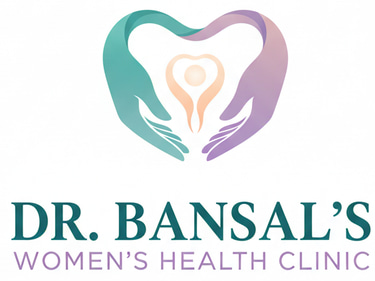PMS/PMDD Treatment in Indore
Dr Bansal's Women's Health Clinic
What is PMS? (Premenstrual Syndrome)
PMS is a widespread disorder that occurs in women 714 days before their menstrual cycle. It occurs as a result of hormonal fluctuations of the menstrual cycle.
It may bring physical, emotional and behavioural symptoms.
Common PMS Symptoms
Mood swings
Irritability
Fatigue or low energy
Bloating
Breast tenderness
Headache
Food cravings
Anxiety or sadness
PMS tends to be mild to moderate and vanishes upon the onset of the period.
What is PMDD? PMDD is a condition occurring in reproductive-aged women that is associated with emotional and somatic disruptions caused by hormonal imbalances.<|human|>PMDD is an ailment that affects women still in their reproductive age group and is connected to emotional and somatic assaults that are brought on by hormonal anomalies.
PMDD is a worse and more intense type of PMS. It has a lower percentage of women, but it may have a great effect on everyday life.
Common PMDD Symptoms
Severe mood swings
Depression or severe depression.
Anger or irritability
Difficulty concentrating
Extreme fatigue
Panic attacks
Feeling out of control
Sleep problems
Physical symptoms: PMS-like (bloating, headaches, body aches).
PMDD can be medically diagnosed and treated.
Causes of PMS & PMDD
The main conditions are associated with:
Hormonal fluctuations
Alterations in the serotonin (a brain chemical that influences mood).
Stress
Poor sleep
Genetic factors
Lifestyle habits
Prevention & Management Tips
1. Lifestyle & Diet
Eat a well-balanced diet (whole grains, fruits, and vegetables).
Cut down on salt, sugar, caffeine and alcohol.
Drink plenty of water.
Take small meals at frequent intervals to minimise bloating.
2. Exercise
Exercise enhances mood and minimises the symptoms.
Goal: 30 minutes of moderate exercise 5 or 6 days a week.
3. Stress Management
Do yoga or deep breathing, or meditation.
Ensure 7–8 hours of sleep daily.
Relaxation methods such as stretching or a warm bath.
4. Supplements (Always consult a doctor before taking)
Calcium
Vitamin B6
Magnesium
Omega-3 fatty acids
They can be used to decrease symptoms.
5. Medical Treatment for PMDD
In case of severe cases, doctors can prescribe:
Antidepressants (SSRIs)
Birth control pills
Hormone therapy
Counselling or therapy
When to See a Doctor?
Seek medical advice if:
Symptoms' impact on working life or daily life.
You have extreme anxiety or depression.
Changes in lifestyles are not working.
Wellness
Dr. Shreyas Bansal has over 46 years of experience in supporting women’s health and wellness. At Dr. Bansal’s Homeopathy Clinic, located at 2 Manish Bhag, Sapana Sangeeta Road, Indore, we offer personalised and gentle homeopathic care for women of all ages. Our treatments focus on balancing hormones, improving overall well-being, addressing menstrual and menopausal concerns, and promoting long-term health—helping every woman feel confident, healthy, and cared for naturally. Best Gynaecologist in Indore
Contact
Support
(+91) 9111110238
© 2025. All rights reserved.
